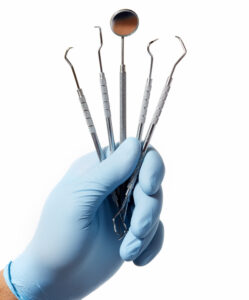Should I Use Dental Tools at Home?
No! 
Seriously. No.
We know there is a huge selection of tools and instruments available today for sale online. We know they say you can clean your teeth at hone and skip the dentist. We know that is tempting. But still, no.
In this week’s blog, we will cover the risks of attempting teeth cleaning through the use of dental tools at home.
What Kind of Tools are You Talking about?
The most common tools people seem to be buying from online vendors are “plaque scrapers”. These are analogous to the curettes and scalers that your dental hygienist uses to clean your teeth during a professional teeth cleaning.
We cannot speak for every single “plaque scraper” on the market, but the ones we have seen and handled are quite flimsy. The metal is not strong enough to perform the tasks for which a dental hygienist uses them. That actually may be a good thing because they are likely to break if you use too much pressure. It is better for the tool to break than your tooth!
Another tool we have seen is something promoted as a “tartar remover”. This rechargeable electric instrument uses vibrations with the goal of removing hardened calculus or tartar buildup from the teeth.
These appear to be similar to an electric toothbrush, but instead of bristles, the head of the device contains a sharp, pointed metal tool. The instructions say to turn it on and place the tip against areas of hard buildup, and it will break it up, removing it from the tooth surface.
What are the Risks of Using Dental Tools?
Before the age of everything being available via internet markets, dental instruments were sold through dental suppliers only to licensed dental professionals. There was an important reason for this. When someone uses a dental instrument incorrectly, you risk damaging your teeth or the tissues around them.
Dental professionals undergo years of training, first on mannequin teeth, then on extracted teeth, then on student partners, and only THEN on live patients. This is necessary for them to understand how to use these instruments to remove bad buildup on the teeth and nothing else.
The risk of having an untrained person using dental tools is that you could remove not only bacterial buildup, but irreplaceable tooth structure as well. The roots of the teeth do not have enamel covering them. They are relatively soft, and you can scrape portions of root structure away with metal instruments. We’ve actually seen patients do this with a fingernail, so a metal instrument is even more dangerous. If severe decay or aggressive gum disease is present, you can actually make the situation worse by poking metal instruments around.
Why Do Some People Try to Use Dental Tools at Home?
 We know that many people suffer from dental fear or anxiety. The idea of having someone else “scrape” on their teeth is so terrible that they would rather attempt to DIY it. For those avoiding professional teeth cleanings due to fear, we understand.
We know that many people suffer from dental fear or anxiety. The idea of having someone else “scrape” on their teeth is so terrible that they would rather attempt to DIY it. For those avoiding professional teeth cleanings due to fear, we understand.
We also have to stress how important your dental health is and the ways in which we have helped others overcome dental fear and receive the vital dental care they need.
The best antidote to fear and anxiety is a trusting relationship with your dentist and dental hygienist. We work to build trust with our patients through clear communication and compassionate care. That takes time.
Until we build that trust, there is sedation. We love helping our patients undergo important dental treatments with sedation. We can keep every patient perfectly comfortable with our various sedation options so that fear does not prevent them from accessing essential healthcare.
We know that the motivation of others in attempting to DIY their teeth cleanings is financial. If you aim to save money by trying to remove plaque and tartar on your own at home, you may be creating the need for more dental treatments in the long run.
The risks of damaging your teeth by using dental tools at home is that you will actually need more extensive and more expensive treatments to repair the damage!
What Should You Do Instead?
We have good news and bad news for you. Let’s start with the good news.
The Good News: You CAN Remove Dental Plaque at Home.
 Dental plaque is soft. It is so soft that you can easily remove it with toothbrush bristles and floss. The only barrier to removing dental plaque is being unable to reach it. Your dental hygienist will give you tips on reaching those hard-to-reach spots.
Dental plaque is soft. It is so soft that you can easily remove it with toothbrush bristles and floss. The only barrier to removing dental plaque is being unable to reach it. Your dental hygienist will give you tips on reaching those hard-to-reach spots.
Remove plaque the safe way through twice daily brushing with a soft bristled toothbrush and flossing every night before bed. You can aid your plaque removal by adding an antiseptic pre-rinse with a mouthwash. Electric toothbrushes typically do remove more dental plaque than manual toothbrushes do, so you should consider upgrading to an electric toothbrush.
If you find yourself struggling with floss, ask your dentist or dental hygienist for tips on how to properly and consistently floss. It is the only way to remove dental plaque from between the teeth, and it is essential to maintaining great dental health.
The Bad News: You CANNOT Remove Tartar at Home.
Tartar (also called calculus) is the hardened, or mineralized, form of plaque that results from not removing dental plaque every day. If you leave plaque on the teeth, it absorbs minerals from saliva over time. This creates a hard shell of bacterial buildup that you cannot remove with a toothbrush or floss.
While you might be able to remove some of it with a “dental tool” that you buy online, you cannot guarantee that you 1) remove it all, and 2) remove tartar alone and not root structure. Don’t do it.
More Questions about How to Clean Your Teeth Well?
Call Designer Smiles to schedule a consultation with Dr. Ann or one of our wonderful dental hygienists. We can answer all of your questions about dental cleanings and home care. We love helping our patients maintain healthy, clean mouths for a lifetime!
